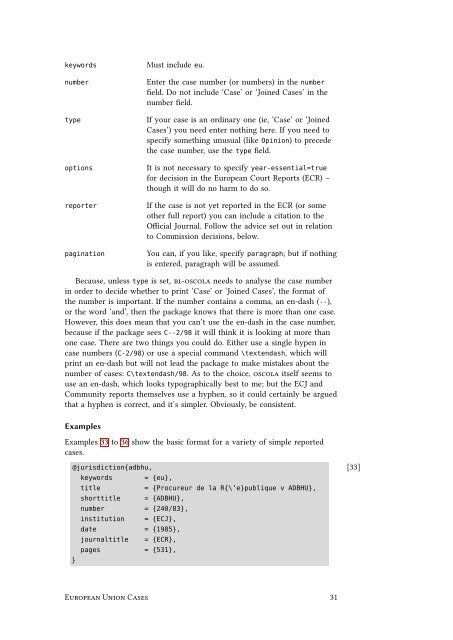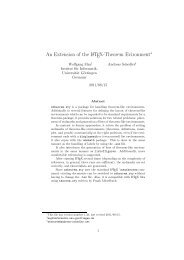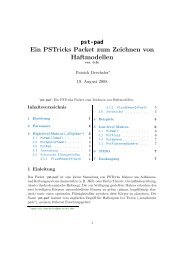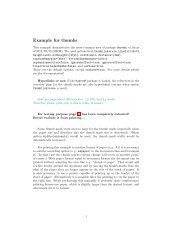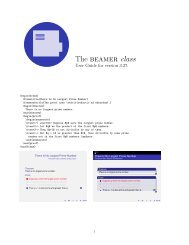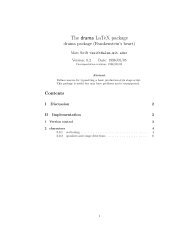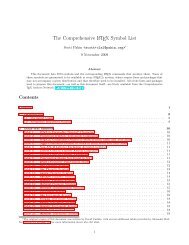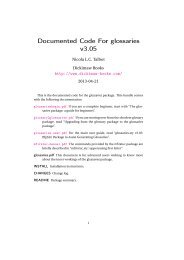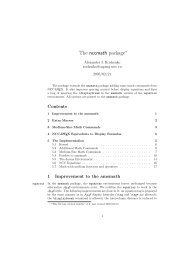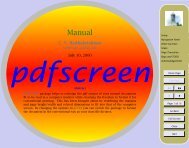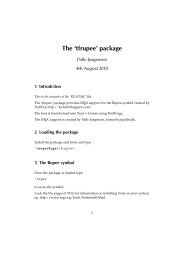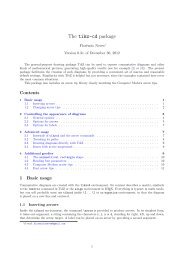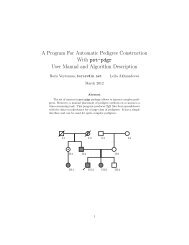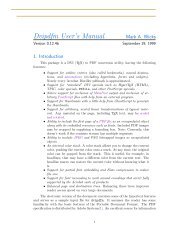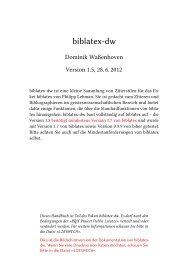oscola.pdf. - Mirrors.med.harvard.edu
oscola.pdf. - Mirrors.med.harvard.edu
oscola.pdf. - Mirrors.med.harvard.edu
Create successful ePaper yourself
Turn your PDF publications into a flip-book with our unique Google optimized e-Paper software.
keywords Must include eu.<br />
number Enter the case number (or numbers) in the number<br />
field. Do not include ‘Case’ or ‘Joined Cases’ in the<br />
number field.<br />
type If your case is an ordinary one (ie, ‘Case’ or ‘Joined<br />
Cases’) you need enter nothing here. If you need to<br />
specify something unusual (like Opinion) to precede<br />
the case number, use the type field.<br />
options It is not necessary to specify year-essential=true<br />
for decision in the European Court Reports (ECR) –<br />
though it will do no harm to do so.<br />
reporter If the case is not yet reported in the ECR (or some<br />
other full report) you can include a citation to the<br />
Official Journal. Follow the advice set out in relation<br />
to Commission decisions, below.<br />
pagination You can, if you like, specify paragraph; but if nothing<br />
is entered, paragraph will be assu<strong>med</strong>.<br />
Because, unless type is set, bl-<strong>oscola</strong> needs to analyse the case number<br />
in order to decide whether to print ‘Case’ or ‘Joined Cases’, the format of<br />
the number is important. If the number contains a comma, an en-dash (--),<br />
or the word ‘and’, then the package knows that there is more than one case.<br />
However, this does mean that you can’t use the en-dash in the case number,<br />
because if the package sees C--2/98 it will think it is looking at more than<br />
one case. There are two things you could do. Either use a single hypen in<br />
case numbers (C-2/98) or use a special command \textendash, which will<br />
print an en-dash but will not lead the package to make mistakes about the<br />
number of cases: C\textendash/98. As to the choice, <strong>oscola</strong> itself seems to<br />
use an en-dash, which looks typographically best to me; but the ECJ and<br />
Community reports themselves use a hyphen, so it could certainly be argued<br />
that a hyphen is correct, and it’s simpler. Obviously, be consistent.<br />
Examples<br />
Examples 33 to 36 show the basic format for a variety of simple reported<br />
cases.<br />
@jurisdiction{adbhu,<br />
}<br />
keywords = {eu},<br />
title = {Procureur de la R{\’e}publique v ADBHU},<br />
shorttitle = {ADBHU},<br />
number = {240/83},<br />
institution = {ECJ},<br />
date = {1985},<br />
journaltitle = {ECR},<br />
pages = {531},<br />
European Union Cases 31<br />
[33]


